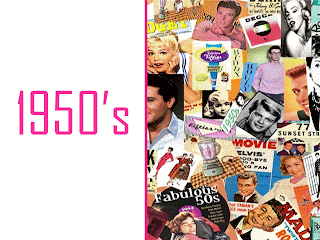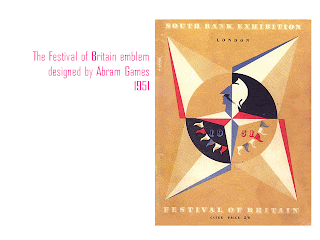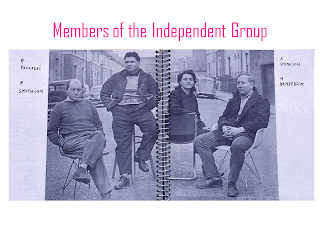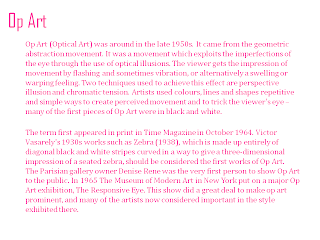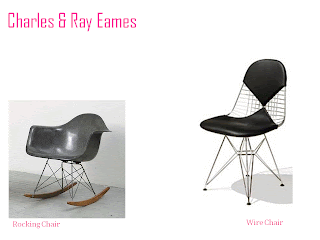The Sixties:
The 1960's was a decade labeled as the 'Swinging Sixties' due to the relaxation of some social taboos that were especially concerned with sexism and racism. The Sixties brought a new way of thinking, attitudes and social change to the world.
Key moments of the 60's were:
The Vietnam War
The Beatles
President John F. Kennedy was assassinated
Martin Luther King made his famous 'I have a dream' speech
First man on the moon.
The Vietnam War
1955-1975
The Vietnam War was a Cold War era military conflict that occurred in Cambodia. It ended due to the fall of Saigon in 30th April 1975. North Vietnam was communist whereas South Vietnam was not, they were supported by other anti-communist countries such as the US.The North Vietnamese Army committed large units into battle, whereas the Southern Army and US forces relied more on air strikes, artillery and overwhelming firepower which allowed them to conduct search and destroy operations.
Below:
A baby in it's makeshift crib, holding their siblings hand, showing how families and homes were destroyed due to the Vietnam War.
The graves of the American soldiers who fought in Vietnam, their buried bodies marked here by their gun, helmet and boots.
Many people protested to stop the war in Vietnam, including students especially after some where killed in demonstrations. Below is an image of a protest of Americans saying 'We won't fight another rich man's war' in Philadelphia.
The age of the 'Hippie'
Derived from the word 'hipster', the hippie culture was a youth movement that arose in the mid 60's in the US then spread drastically around the world. People that followed the Hippie trend generally listened to psychedelic rock, they embraced the sexual revolution ('Swinging' Sixties') and even used drugs such as cannabis, LSD and magic mushrooms to explore states of consciousness.
Hippies had a love for music, drugs, and sex. But they also cared for world affairs and the environment, they took part in protests and the famous phrase 'Make love, not war' was a typical Hippie way of life. They were all for peace, and often used the hand gesture or peace symbol in recognition of this.
The Summer of Love, in 1967.
The Human Be-in was an outdoor event organised by Michael Bowen, it helped popularize the Hippie culture in the US. It was held at the Golden Gate Park in San Francisco and managed to gather 20,000 hippies. This as well as the Central Park Be-In and the Monterrey Pop Festival marked the start of the 'Summer of Love'.
"If you're going to San Francisco, be sure to wear some flowers in your hair" were lyrics that inspired thousands of young people to travel, wear flowers and even hand them out to passers by, the name 'Flower Children' and the phrase 'Flower Power' came from this.
The poster for the San Francisco Be-In is below, the triangle shape is significant as today people can be referred to as 'Hipsters' for following the current trends, and TRYING to be original, and a bit wacky - the triangle is a symbol for this.
I have looked into the triangle as a symbol, and to see why they are significant for the Hippie AND today's Hipster trend.
- Triangles have 3 points, and they can tessellate, meaning they can literally 'fit in' anywhere. The ideology behind this is that they are sort of 'conformist' and 'mainstream' in a way. Hipsters are the opposite, they want to be unique and cling to the triangle as a symbol of irony.
- Triangles have points/corners, pointed things are sharp and that's exactly how they wish to be - sharp, brash and individual people - this fits in with the true ideals of the Hipster stereotype.
- The triangle is also a symbol for capital Delta, which is the sign for change. Hipster is known as a new-age movement and they strive to be different and considered 'apart' from the rest. The Hipster views them self as a kind of Delta - therefore triangle.
The Beatles
The Beatles were an English Rock band formed in Liverpool in 1960. During the 60's they put Britain on the map with their music, the craze for their music was dubbed as 'Beatlemania'. They are now known as one of the most commercially successful and critically acclaimed acts in the history of popular music.They stated off as rock and roll then later worked on many other genres including pop ballads and psychedelic rock (the music of the Hippies).
Below: The famous Beatles cover artwork from their album Abbey Road, their 11th studio album. Abbey Road is situated in the borough of Camden, in London, this crossing is a major tourist attraction to the present day. It has been given a grade 2 listed status preserving it for future generations.
John F. Kennedy Assassination
Full name, John Fitzgerald Kennedy, often referred to as JFK was the 35th President of the US, he became President in 1961. Kennedy defeated the then Vice President and Republican candidate Richard Nixon in the 1960 US presidential election. He was the youngest to be elected, at 43 and also the only Catholic president.
Some of the events which occurred during Kennedy's presidency include the Cuban Missile Crisis, the Space Race, the African American Civil Rights movement and the Vietnam War.
Whilst on a political trip to Texas, Kennedy was assassinated - it has proved to be an important moment in US history because of its impact on the nation.
Below: JFK in the presidential limousine seconds before his assassination, Dallas 1963.
Martin Luther King
Martin Luther King was the leader of the African American Civil Rights movement, and has become a National icon in the history of Modern American liberalism. He led a march in 1963 on Washington in protest for jobs and freedom for Black people, this is where he made his famous 'I have a dream' speech. In 1964 he became the youngest person to receive a Nobel Peace Prize for his work trying to end racial segregation and discrimination.
An extract from 'I have a dream':
"And this will be the day -- this will be the day when all of God's children will be able to sing with new meaning:
My country 'tis of thee, sweet land of liberty, of thee I sing.
Land where my fathers died, land of the Pilgrim's pride,
From every mountainside, let freedom ring!
And if America is to be a great nation, this must become true.
And so let freedom ring from the prodigious hilltops of New Hampshire.
Let freedom ring from the mighty mountains of New York.
Let freedom ring from the heightening Alleghenies of Pennsylvania.
Let freedom ring from the snow-capped Rockies of Colorado.
Let freedom ring from the curvaceous slopes of California.
But not only that:
Let freedom ring from Stone Mountain of Georgia.
Let freedom ring from Lookout Mountain of Tennessee.
Let freedom ring from every hill and molehill of Mississippi.
From every mountainside, let freedom ring.
And when this happens, when we allow freedom ring, when we let it ring from every village and every hamlet, from every state and every city, we will be able to speed up that day when all of God's children, black men and white men, Jews and Gentiles, Protestants and Catholics, will be able to join hands and sing in the words of the old Negro spiritual:
Free at last! Free at last!
Thank God Almighty, we are free at last!"
'Space Race'
In 1961, Russian man Yuri Gagarin became the first human to journey into outer space, when his Vostok spacecraft completed an orbit of the Earth.
In 1969, Neil Armstrong a NASA astronaut and part of the Apollo 11 space crew became the first man to step foot, and walk on the moon. He famously planted the USA flag upon the moon and stated:
'That's one small step for man, one giant leap for mankind'.
The Seventies:
In the Western world, an increasingly political awareness and the economic liberty of women that began in the 60's continued to grow throughout the 70's.
Key moments of the 70's:
- Bhola cyclone kills over 500,000 in East Pakistan, 1970
- Oil crisis in America, 1973
- US President Richard Nixon's Watergate scandal of 1974
- Fall of Saigon, and end of Vietnam War 1975



Top to bottom: The Bhola Cyclone shown from a satellite over Pakistan, a man put out of business due to the Oil crisis, Nixon answering questions about the Watergate scandal, and a soldier returns home from Vietnam to the open arms of his family.
70's fashion
Clothing trends in the 70's consisted of mini skirts, mini dresses, hot pants, bell bottomed trousers, flared jeans, cropped tops and platform shoes.
The 'Disco Look' including a three piece suit as seen below on John Travolta in the film Saturday Night Fever in 1977.
70's style women's mini dresses with collars and cuffs. Vibrant patterns were popular for fashion at the time.
Punk Era
The punk subculture emerged in the 1970's, it has been described before as a 'bricolage' of almost every youth culture to exist in the West since World War II, "stuck together with safety pins". Punk rock has a variety of musical origins both within the rock and roll genre and beyond.
The Sex Pistols were a major influence on the Punk era in the UK, they were an English Punk Rock band that formed in London in 1975. The Sex Pistols original line up consisted of vocalist Johnny Rotten, guitarist Steve Jones, drummer Paul Cook and bassist Glen Matlock (Matlock was replaced by Sid Vicious in 1977). The band were controversially known for making such albums as "God Save the Queen" and "Never mind the bollocks, here's the Sex Pistols".
.jpg)
























